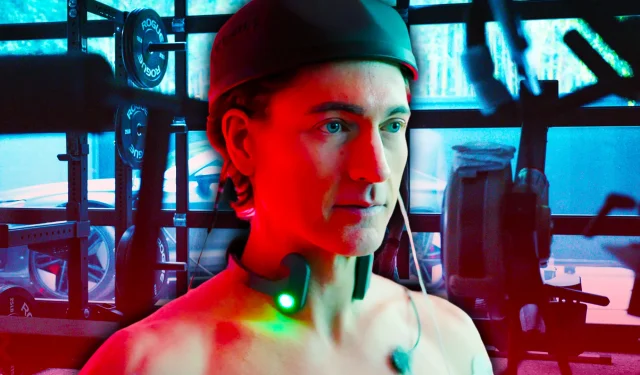
Don’t Die: The Man Who Wants to Live Forever
The Netflix documentary Don’t Die: The Man Who Wants to Live Forever delves into the fascinating journey of Bryan Johnson, an entrepreneur who is seeking to defy the aging process through his ambitious Project Blueprint. This exploration captures Johnson’s quest to reverse his biological clock, aiming to restore himself to the vitality of an eighteen-year-old. The film meticulously outlines the diverse routines, cutting-edge medications, and unconventional therapies that Johnson employs in pursuit of his extraordinary goal.
Once primarily recognized for founding the successful payment platform Braintree, which later acquired Venmo before being absorbed by PayPal, Bryan Johnson has shifted his public persona towards becoming a viral sensation known for his high-stakes anti-aging ventures. His extravagant expenditure on Project Blueprint, including controversial practices like plasma transfusions with his father and son, has attracted significant attention, as highlighted in the documentary.
Understanding Project Blueprint
Initiation in 2021
Launched in 2021, Project Blueprint encompasses Bryan Johnson’s overall initiative to combat aging and extend life. In a Medium article, Johnson elaborated on this venture, which involves a rigorous monitoring system of all 70 organs in his body aimed at substantially lowering their biological age. The project is supported by a dedicated team of medical professionals, prominently featuring Dr. Oliver Zolman, showcased in the documentary as instrumental to the Project Blueprint framework.
Beyond a mere assortment of medical professionals, the Blueprint website documents Johnson’s journey, provides insights into anti-aging strategies, and offers various products related to his health initiatives. However, this marketplace angle has sparked controversy, with critics asserting that Blueprint’s practices resemble a scheme to create and sell solutions to a self-identified problem.
The Controversy Surrounding Plasma Transfusions
Utilizing Plasma from Family
A pivotal and contentious aspect of Johnson’s anti-aging efforts revolves around his practice of plasma transfusions. In the documentary, a review of studies is presented, including an experiment where two mice are surgically connected. The findings suggest that the older mouse’s organ age was reduced by receiving blood from the younger mouse, leading Johnson to advocate for the belief that similar transfusions could rejuvenate his age bio-markers.
This experimental practice began with plasma transfusions from his son, Talmage Johnson, later expanding to include his father donating plasma to Bryan. Criticism has emerged surrounding the ethics and effectiveness of this procedure, with social media discourse labeling it as bizarre. Although the documentary attempts to contextualize Johnson’s motivations within a broader scientific landscape, he remains visibly enthusiastic about showcasing these familial treatments through various photos and posts.
Perspectives from Scientists and Health Experts
Critical Views Featured in the Documentary
Throughout Don’t Die: The Man Who Wants to Live Forever, several scientists and health professionals express skepticism about Bryan Johnson’s life-extension measures. Among them, Dr. Andrew Steele provides a critical perspective, arguing that the multitude of concurrent treatments renders it impossible to ascertain their individual effects on Johnson’s health.
Another significant voice is that of Dr. Vadim Gladyshev, who scrutinizes the application of rapamycin, a drug known to extend the life of mice and used by Johnson. He argues that without a controlled experimental approach, Johnson’s efforts offer “almost no contributions to science,”suggesting that a more rigorous research protocol would yield more valuable insights. The documentary also highlights concerns regarding Johnson’s financial investment, with some experts favoring funding that might contribute more meaningfully to legitimate clinical trials and advancements in medical science.
In summary, Bryan Johnson’s Project Blueprint poses profound questions not only about the future of anti-aging research but also about the ethical and scientific foundations of such individualized health pursuits.
Sources: Blueprint, Don’t Die: The Man Who Wants to Live Forever, Medium




Leave a Reply